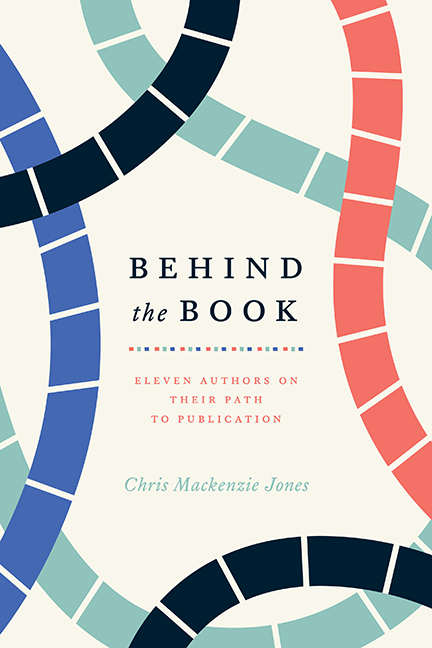
About Behind the Book
Every book has a story of its own, a path leading from the initial idea that sparked it to its emergence into the world in published form. No two books follow quite the same path, but all are shaped by a similar array of market forces and writing craft concerns as well as by a cast of characters stretching beyond the author. Behind the Book explores how eleven contemporary first-time authors, in genres ranging from post-apocalyptic fiction to young adult fantasy to travel memoir, navigated these pathways with their debut works. Based on extensive interviews with the authors, it covers the process of writing and publishing a book from beginning to end, including idea generation, developing a process, building a support network, revising the manuscript, finding the right approach to publication, building awareness, and ultimately moving on to the next project. It also includes insights from editors, agents, publishers, and others who helped to bring these projects to life. Unlike other books on writing craft, Behind the Book looks at the larger picture of how an author’s work and choices can affect the outcome of a project. The authors profiled in each story open up about their challenges, mistakes, and successes. While their paths to publication may be unique, together they offer important lessons that authors of all types can apply to their own writing journeys.
No Baggage by Clara Bensen
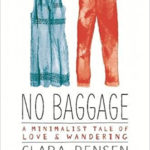
No Baggage
No Baggage is a travel memoir that rose out of a viral Salon article titled “The Craziest OKCupid Date Ever.” The original article explored a baggageless trip across the world with someone she barely knew, and it was one of the first things Clara Bensen had written.
The article has now been read more than five hundred thousand times, and it led to a number of book-deal offers for Clara. When the offers poured in, she wasn’t sure she was ready to write a book. “I took one creative writing class in community college,” says Clara. “I’ve long been writing, I’d published a little bit on a personal website, but that Salon article was my first publication ever.”
But the viral sensation of her story opened a lot of doors, and soon Clara had an agent, a publishing deal, and a movie option, all based on one Salon article and a book proposal. That may sound like a dream for any aspiring writer, but it meant Clara had to learn the rules of the publishing world in reverse, which wasn’t as wonderful as it sounds.
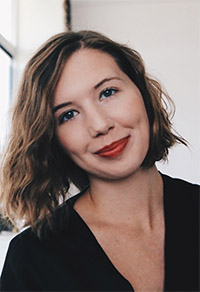
Clara Bensen
“Initially people thought it was some kind of stunt or carefully planned marketing ploy. But taking that trip, just like writing this book, was a personal challenge and an adventure. I had to overcome a lot to go on that trip, as I describe in the book, so it was more about just taking a next step. I did not go into it thinking ‘This will make a great book.’”
Clara completed No Baggage in eight months. It was published by Running Press, a member of the Perseus Books Group, in 2016. It was edited by Jennifer Kasius and represented by Stacy Testa of Writers House.
No Baggage received global coverage and reviews after its release. It has been translated into a dozen languages, and the movie was in development at the time of this writing. Clara is working on her next project, a series of social experiments that play with the intersection between madness and society. She continues to travel around the globe with her partner Jeff—without any bags.
Ruby by Cynthia Bond
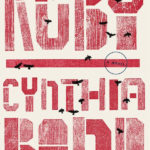
Ruby
Ruby is a work of literary fiction and a New York Times best seller, described in promotion as an “epic, unforgettable story of a man determined to protect the woman he loves from the town desperate to destroy her.” The story weaves together multiple narrative threads and covers challenging themes of human trafficking, sexual violence, mental health, and racism. Ruby’s author, Cynthia Bond, was born in East Texas but spent much of her childhood in Lawrence, Kansas, where her father was a literature and theater professor. As a young girl, she was fortunate enough to meet Gwendolyn Brooks, Sonia Sanchez, Nikki Giovanni, and Maya Angelou, and each made an impression on her work in adulthood. By the time she left home for college, she’d been exposed to a lot of writing. She recalls the massive stacks of books strewn around the house. But she did not intend to be a novelist; when she left for college, she had her eye on a degree in journalism.
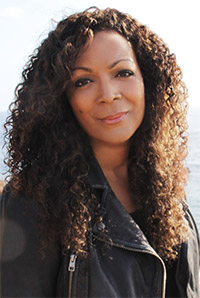
Cynthia Bond
Cynthia worked in journalism for a while, but memories of her dad’s theater work pulled her in another direction—acting. “As a young girl I’d watch him, sit in the back of the auditorium while he was directing plays, and then we’d go home and just talk about structure and the arc of the characters,” she says. So she returned to school and pursued a life in theater. After several years Cynthia shifted yet again and moved into social work, mostly working with at-risk and runaway youth. Many years later—still working with these populations and after personal struggles of her own—Cynthia found herself in a community writing class, where she started what would become her first novel, Ruby. Cynthia says all three of her career stops helped inform and propel her work. “In journalism school, I learned about crafting a story in a succinct manner. In acting school, I played a lot of characters in really good plays. So I learned about exploring the arc of characters, the twists and turns and rise and fall in those stories. And then in my work with youth, I lived it. The stories in this book needed to be told because there are so many children on this earth who are going through the unimaginable. And I really sometimes believe that we are unaware that we are living through a genocide of children. People don’t see it, they don’t know it, they’re unaware of it. But kids are being killed, they’re being chained to beds, given drugs to make them comply, being thrown out of their homes because they’re gay or transgender. So those stories are just a part of me now, and I needed to try to tell them.” From the initial impulse to write it to the day it came out, Ruby took Cynthia Bond fifteen years to complete. Ruby was published by Hogarth, an imprint of Penguin Random House, in 2014. It was edited by Lindsay Sagnette and represented by Nicole Aragi of Aragi, Inc. Ruby was a New York Times best seller, an Oprah’s Book Club 2.0 selection, and a finalist for the PEN / Robert W. Bingham Prize. It reached numerous best-seller lists and has been translated into many languages. At the time of this writing, Cynthia Bond is working on the second book in the Ruby trilogy.
Bird by Zetta Elliott
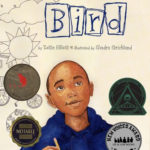
Bird
Bird is a picture book about a boy named Mehkai, better known as Bird to the people who know him. Bird loves to draw and tries to use drawings to cope with the death of his grandfather and with his older brother’s drug addiction. Featuring beautiful illustrations from Shadra Strickland, Bird tells the story of a young boy coming to terms with real-life issues of addiction and loss. The story has been widely praised for allowing new and more open conversations around mortality and addiction with young children—issues that many small children experience firsthand but don’t know how to talk about. Zetta Elliott wrote Bird quickly, in “about a day.” But she revisited and revised the manuscript over many years before submitting it. Many publishers and agents told her the book’s content was too mature for a picture book. Finally, after persevering through criticism and an industry she views as stacked against writers of color like herself, Zetta submitted it to the Lee & Low New Voices Contest, and the book was awarded first prize.
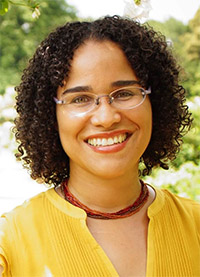
Zetta Elliott
The prize came with a cash award and the potential for being published by Lee & Low. The book was published traditionally, but not without bumps along the way—enough bumps that Zetta Elliott has now mostly turned to self-publishing. Between the day she sat down to write it and the day it came out, Bird took about five years to become reality. It was published by Lee & Low Books in 2008. After its release, Bird received numerous starred reviews and was listed on many best-children’s-books-of-the-year lists. It won the Ezra Jack Keats Book Award, the Paterson Prize for Books for Young People, and a Coretta Scott King Award, and was named an ALA Notable Children’s Book. As of this writing, Zetta Elliott has now published eighteen books for children, four books for teens, two books for adults, and three plays. She has self-published most of those works and continues to advocate for writers of color in publishing.
California by Edan Lepucki
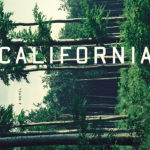
California
California is a dystopian novel, or as Edan Lepucki puts it, “a postapocalyptic domestic drama.” It follows a husband and wife, in shifting points of view, across an apocalyptic California. Not only must this couple figure out the newly devastated world, but they must also balance their reliance on each other with the secrets they continue to keep from each other.
Edan Lepucki began California because she heard from numerous agents and editors that her first novel manuscript, which she had spent many years writing, was not going to sell. At the time, she had completed her MFA degree from the Iowa Writers Workshop and she was teaching in and around Los Angeles. Besides the novel that never got off the ground, Edan had published some short stories and was a frequent contributor to The Millions.
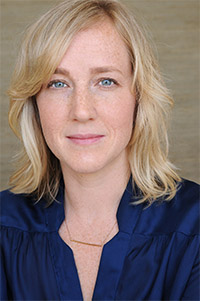
Edan Lepucki
California is the novel that Stephen Colbert held up in front of his Colbert Report audience in 2014 and instructed them to buy from Powell’s Books to protest the Amazon-Hachette dispute. That TV moment helped propel Edan’s debut novel to best-seller lists.
The book took four years from the moment she started it to the moment it landed on shelves, and in thousands of readers’ mailboxes through their Powell’s orders. It was published by Little, Brown, an imprint of Hachette, in 2014. California was edited by Allie Sommer and represented by Erin Hosier at Dunow, Carlson, and Lerner.
California debuted at number 3 on the New York Times Best Sellers List and has been number 1 on the Los Angeles Times and San Francisco Chronicle best-sellers lists. It also was listed on the IndieBound and Publishers Weekly Bestsellers Lists. Edan’s second novel, Woman No. 17, released in 2017.
I Am Having So Much Fun Here Without You by Courtney Maum
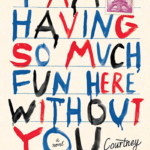
I Am Having So Much Fun Here Without You
I Am Having So Much Fun Here Without You is a literary novel set in Paris. It is intentionally not a typical Paris story. This story splits between moments of dark comedy and piercing observation—it revolves around a man whose lover recently left him and whose wife found out. The apparent positives in his life—the romance of Paris, the successful art career, the loving family—are just illusions, and we follow this man as he tries to put his life back together.
One of the strengths (or, for some, weaknesses) of this book is that the main protagonist is complicated and often unlikable. Some readers and critics negatively focused on his likability in reviews. More reviews, however, praised Courtney Maum’s ability to make the reader empathize with a challenging character. In addition to the weighty topic, Courtney’s book is frequently praised for the amount of humor it delivers.
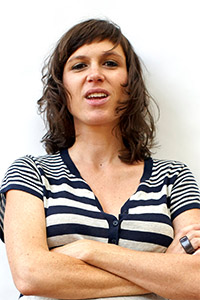
Courtney Maum
I Am Having So Much Fun Here Without You was almost abandoned permanently. Courtney literally stuffed the manuscript in a box for ten years before returning to it. “I certainly never had any dreams of it seeing the light of day. Nor did I think about self-publishing it, which I have done with other work. I self-published a collection of short stories for the fun of it so I could have something to hand out without having to go through the spiral of rejection again. But this novel—it was just going to stay in that box.”
But it didn’t. As a result of one conversation, Courtney returned to the manuscript and rewrote the entire novel. By that time she had three other novel-length manuscripts, two of which she also never intended to seek publication for. But that much writing experience meant Courtney wasn’t afraid to begin rewriting I Am Having So Much Fun Here Without You years after she’d abandoned the project. “I wasn’t frightened or daunted at all by the idea of this novel. By then I’d already written so much.”
More than twelve years passed between the time Courtney had the idea for I Am Having So Much Fun Here Without You and the day it landed on shelves in 2014. It was published by Touchstone, an imprint of Simon & Schuster. It was edited by Sally Kim and represented by Rebecca Gradinger of Fletcher and Company.
Since it came out, I Am Having So Much Fun Here Without You has been reviewed widely including in Vogue, People, the New York Times, the Washington Post, the Wall Street Journal, O, The Oprah Magazine, and Flavorwire. It was featured on several best-debut-books-of-the-year lists in 2014 and in featured-picks lists on IndieNext, Amazon, and Apple. It has been translated into multiple languages. Courtney’s second novel, Touch, released in 2017.
My Blue Skin Lover by Monona Wali
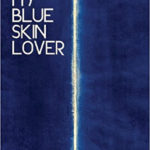
My Blue Skin Lover
My Blue Skin Lover is a magical-realism novel about a married woman who is growing weary of the pressures on her life: the clinical, data-driven focus of her PhD advisor, the materialism of her husband’s corporate ladder climbing, and the loneliness and frenetic pace of living in New York City. She meets the god Shiva by chance, and they ultimately have a love affair. The book explores themes of materialism, marriage, friendship, self-discovery, and spirituality.
Monona Wali wrote the book with the intention of publishing it in the traditional way, but after a few missteps, including paying for editorial advice that set her work back and an agent who abandoned her, she had mostly given up on publishing the story at all. But soon people in Monona’s life pushed her to explore other options. That push led her to revise and self-publish the book in 2014 through Blue Jay Ink, nearly four years after she started it.
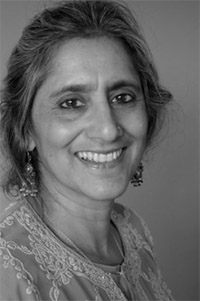
Monona Wali
My Blue Skin Lover wasn’t the first thing Monona had written, however. She has published numerous short stories and written and edited a 1991 award-winning documentary called Maria’s Story.” She turned to working on novels only about a decade ago. An early manuscript has been left in a drawer, and she freely admits, “I really didn’t know what I was doing.” Yet that failed novel helped pave the way for her work on My Blue Skin Lover.
My Blue Skin Lover came out and mostly sold locally, through Monona’s connections and circles. It then gained sales and reviews after winning Independent Book Publishers’ 2015 IPPY Award for Best Multicultural Fiction, one of the most influential and respected award series for self-published books. Monona Wali continues to teach creative writing and is working on her next novel.
Going Somewhere by Brian Benson
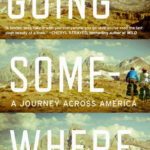
Going Somewhere
Going Somewhere is a work of narrative nonfiction—a candid memoir covering a couple on a cross-country bicycle trip. It explores themes of choice, hindsight, possibility, discovery, and relationships. Cheryl Strayed, who helped Brian develop the book, wrote about Going Somewhere that it is “as poignant as it is gripping, as hilarious as it is wise. Going Somewhere is a tender, sexy, take-it-with-you-everywhere-you-go-until-you’ve-read-the-last-page beauty of a book.”
Brian Benson grew up in northern Wisconsin, “just outside a town with three bars and no stoplights.” He attended the University of Wisconsin and never intended to become a writer. After several years of traveling, and odd jobs here and there, Brian and his then-girlfriend Rachel took a bike trip from his childhood home in Wisconsin to Portland, Oregon.
When he set out for the trip, Brian hadn’t once considered writing about it. In the first chapter of Going Somewhere, he explains that he wanted to go on the trip to find a sense of direction—“some sense that by going somewhere I was going somewhere.” So he cataloged the trip in his journal—the weary bodies and bikes, the many friendly and terrifying chance encounters, the fierce winds and brutal heat, and the changing meaning of the future for each of them. As they neared Portland and the end, Brian started to consider writing a book based on his trip journal.
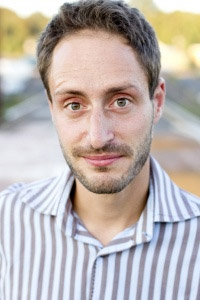
Brian Benson
He had some journalism and academic writing experience but had done almost no creative writing when he set out to write the book. From that first impulse to the day it came out, it took more than five years for Brian to make Going Somewhere a reality. He admits to some big gaps along the way when he shelved the project.
Brian points to a number of varied influences on his writing, in particular his close work with Karen Karbo and Cheryl Strayed in a writing program in Portland. But during his trip he was primarily reading two books, You Shall Know Our Velocity by Dave Eggers and The God of Small Things by Arundhati Roy. He says those books, for different reasons, helped shape his plan to write his own book. Eggers’s novel, which is “so much about privilege and guilt and choice,” crystallized some of Brian’s own thoughts about his journey. He was particularly taken with how Eggers was able to turn abstract ideas into a specific story. Roy’s influence was less about the story and more about the language. Maybe more than when reading any other writer, he says, “when I read her work, I want to put the book down all the time and just start writing.”
Going Somewhere was published by Plume, an imprint of Penguin Random House, in 2014. It was edited by Denise Roy and represented by David Forrer of Inkwell Management Literary Agency.
Since coming out, Going Somewhere was selected as a Powell’s New Favorite and a Multnomah County Library selection. It has been listed in several “best of” travel and biking book lists. In 2015, a year after Going Somewhere’s release, Brian coproduced The River Signal, a radio drama written and recorded during a trip down the Mississippi River. He continues to teach creative writing at the center that helped him find his sea legs as a writer, the Attic Institute in Portland, and he is now at work on a second book. This time he’s trying his hand at a novel.
Wicked as They Come by Delilah Dawson
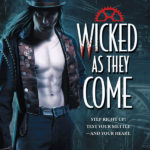
Wicked as They Come
Wicked as They Come blends a number of genres including fantasy, paranormal, steampunk, and romance. It is the story of a woman who finds herself swept into and ultimately trapped in a surreal, faraway world full of Blud-creatures and Bludmen. Wicked as They Come was written by Delilah Dawson. She had never intended to become a writer; in her youth she didn’t really think it was possible. While she was growing up, she says, you couldn’t just type “how to get published” into Google and find thousands of answers. “So being an author was like being a magical being. I didn’t even think it was possible, and so I didn’t write my first book until I was thirty-two.”
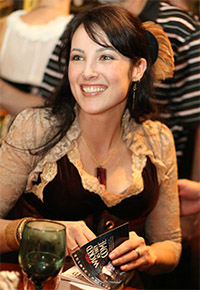
Delilah Dawson
Her first book wasn’t Wicked as They Come, which was actually her third completed manuscript. “The first book I wrote was so totally wretched that I use the first chapter in classes. I show it and say, ‘Look, even if you write this poorly, you can still get published one day.’ By the time I had the idea for Wicked as They Come, I knew I could write and finish a book. If I hadn’t tried to write those others, I don’t think I would’ve had the skills to turn it into a book.” From idea to landing on the shelf, Wicked as They Come took two years to become reality. It was published by Pocket Books, a division of Simon & Schuster, in 2012. It was edited by Abby Zidle and represented by Kate McKean of Morhaim Literary. Wicked as They Come launched a growing and prolific career for Delilah. Since its release, Delilah has published dozens of stories, e-books, books, and comics, under her own name and two pen names. She has received numerous starred reviews and awards, including RT Book Reviews Steampunk Book of the Year award. She regularly teaches for Lit Reactor.
Volt by Alan Heathcock
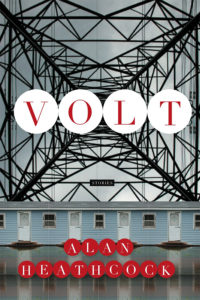
Volt
Volt is a collection of linked short stories, all taking place in a fictional small town named Krafton. The stories connect lives torn apart—and sometimes sewn back together—by tragedy, violence, and injustice. The collection originated as two failed novel attempts by Alan after his MFA program. “In graduate school I wrote short stories because that’s what people do, but in my mind I really wanted to be a novelist. So I had these novel ideas, but I didn’t know how to write a novel.” One of the key elements of the stories is the town of Krafton, and Alan wanted it to feel like a place that could be anywhere in America. He avoided setting the stories somewhere specific because he found that readers attach a secondary layer of meaning based on their knowledge of an existing place, and he didn’t want that. “Having traveled a lot throughout this country, I know there is a kind of homogeneity to small towns. There are differences in flora and fauna and accents and verbiage, but I was more interested in finding a template that just seemed like America.”
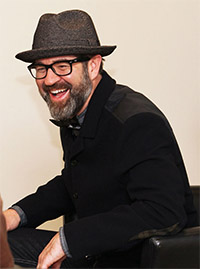
Alan Heathcock
With that place firmly in his mind, he started dissecting his two failed novels and identifying the most powerful sections and stories from them. As Alan puts it, those sections had one thing in common: the muck. Moments of terror, grief, and injustice—“volt moments,” as he also calls them—that ripple through the characters and the town, changing them forever. So he focused on those, revising some stories and writing some new ones until he had the complete collection for Volt. All told, Volt took about ten years to come into existence. It was published by Graywolf Press in 2011. The collection was edited by Fiona McCrae and represented by Sarah Burnes of the Gernert Company. When Volt came out it was named a Best Book of 2011 by Publishers Weekly, Shelf Awareness, GQ, Salon, Book Page, the Plain Dealer (Cleveland), and the Chicago Tribune. Alan won the prestigious Whiting Award for Volt, and the singer-songwriter Chad Summerville released an album of songs based on the book. Alan now teaches creative writing at Boise State University; he has published a number of short stories since Volt’s release.
The Borrower by Rebecca Makkai
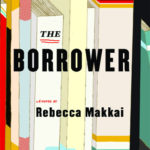
The Borrower
The Borrower is a novel of literary fiction which Pulitzer Prize winner Richard Russo described as “smart and engaging and learned and funny and moving.” It’s the story of a school librarian who starts by innocently trying to sneak books past an overbearing and censoring mother to a child who needs them. But the more she learns about the child and his home life, the more she wants to help, and in a moment of desperation, they leave together on a road trip across the country.
Although the relationship is entirely nonsexual, the story echoes back to Nabokov’s Lolita; with a mix of humor and empathy, it explores themes of permission, parenting, boundaries, secrets, children’s literature, homosexuality, and discovery.
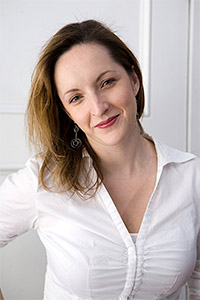
Rebecca Makkai
The Borrower was written by Chicago-based author Rebecca Makkai. More than ten years passed from the moment she had the idea to the day The Borrower came out. In the interim Rebecca had become one of the nation’s most respected short-story writers, appearing in Best American Short Stories four years in a row.
Before these accomplishments, Rebecca had often felt she wasn’t yet ready to pull off a novel, which led her to set it aside for long periods of time. Rebecca says she was influenced by many things you would expect, based on the story’s themes and plot: Lolita, Huckleberry Finn, The Wizard of Oz, and Catcher in the Rye.
The Borrower was published by Viking, an imprint of Penguin Random House, in 2011. It was edited by Alexis Washam and represented by Nicole Aragi of Aragi, Inc.
The Borrower was selected as an Indie Next Pick, was named to a number of “best of” lists for debut fiction, and has been translated into eight languages. Since its release Rebecca Makkai has won an NEA Fellowship, published two more widely acclaimed books, and taught at the Iowa Writers Workshop, Tin House, and Northwestern University.
Inked by Eric Smith
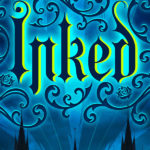
Inked
Inked is a young adult fantasy novel about a young man who rebels just before his inking, which in this world means the application of magical tattoos that determine one’s fate in society.
When Eric wrote Inked he was also working on a book for Quirk Books, where he work
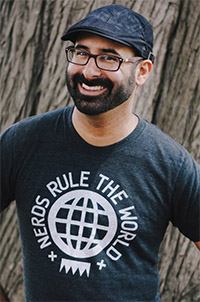
Eric Smith
ed. So Eric split his time between writing Inked and writing The Geek’s Guide to Dating. With a full-time publishing job and two books to write, Eric had to be very disciplined with his time.
Eric points to the video game series Final Fantasy, in addition to some well-known YA fantasy works, as a major influence on Inked. He says playing the game feels like playing inside a novel, and he wanted to try to capture that feeling in his own book.
Inked was published in 2015 by Bloomsbury Spark, a young adult digital publishing imprint of Bloomsbury Publishing. It was edited by Meredith Rich and represented by Dawn Frederick of Red Sofa Literary.
For his book launch Eric helped facilitate a theme song written by the band Blue of Colors, and his book has been highlighted in a variety of publications. A second book in the Inked series, titled Branded, was published in 2016.
More Ways to Connect
Behind the Book is a great potential addition for events, conferences, and classes aimed at aspiring writers and publishing professionals. Since it is based on case studies, it can stand alone or work in conjunction with the works featured in the book. It can also serve as a launching point for further conversation and study through seminars, breakout sessions, or conversational events.
Participants who read the book and/or attend events should expect to walk away with lessons from first-time authors that they can apply to their own work and process. Participants will find useful conversation and resources around their potential approach to:
- idea generation
- developing a writing process
- building a support network
- addressing craft and thematic issues
- approaching revision
- withstanding setback and rejection
- navigating publishing options
- working with publishing professionals
- transitioning to the business side of writing
- dealing with feedback and reviews
- and moving on to the next project
Interested in learning more? Contact me through the form below.
Upcoming Events
Monday, April 9, 7 p.m.
Behind the Book: Some Hell with Patrick Nathan and Chris Jones
Pryes Brewery
Monday, June 25, 7 p.m.
Behind the Book: The Great Believers with Rebecca Makkai and Chris Jones
The Loft Literary Center